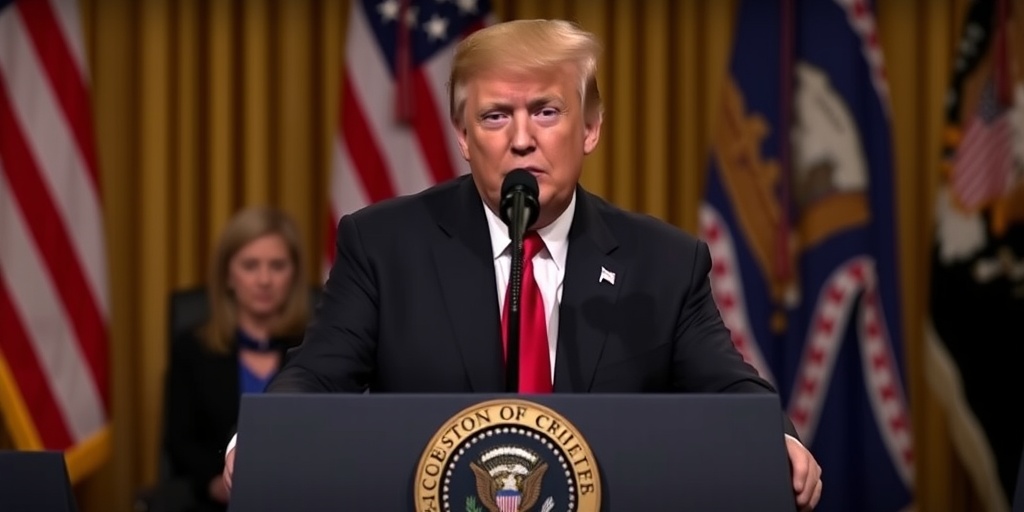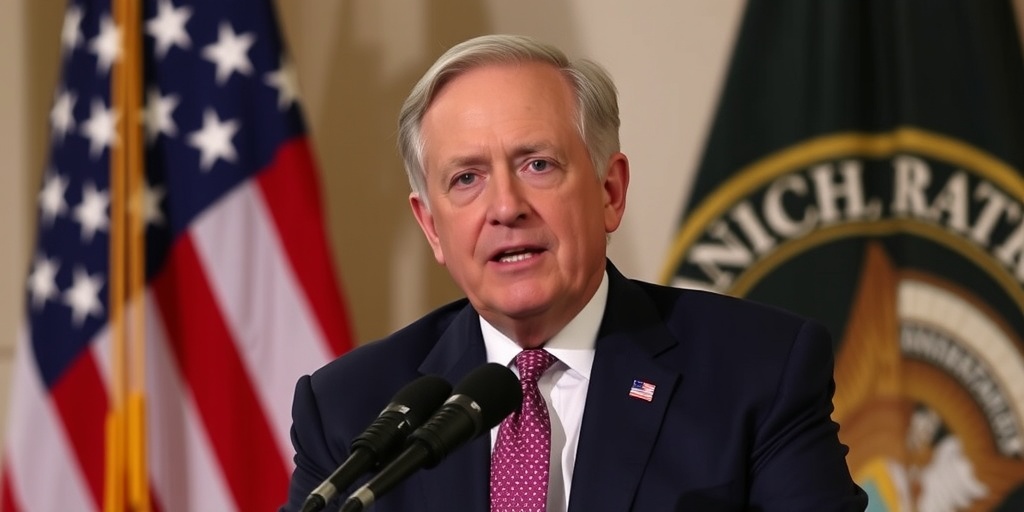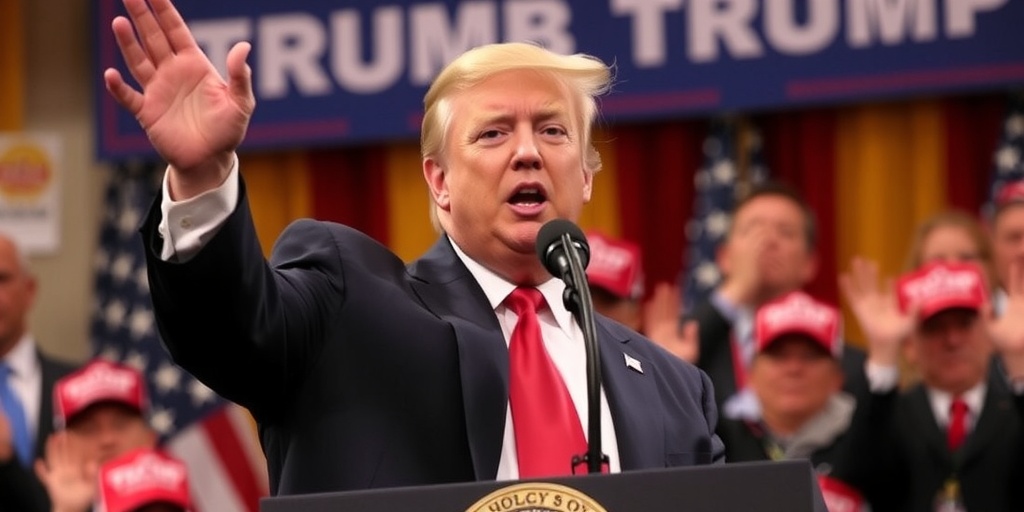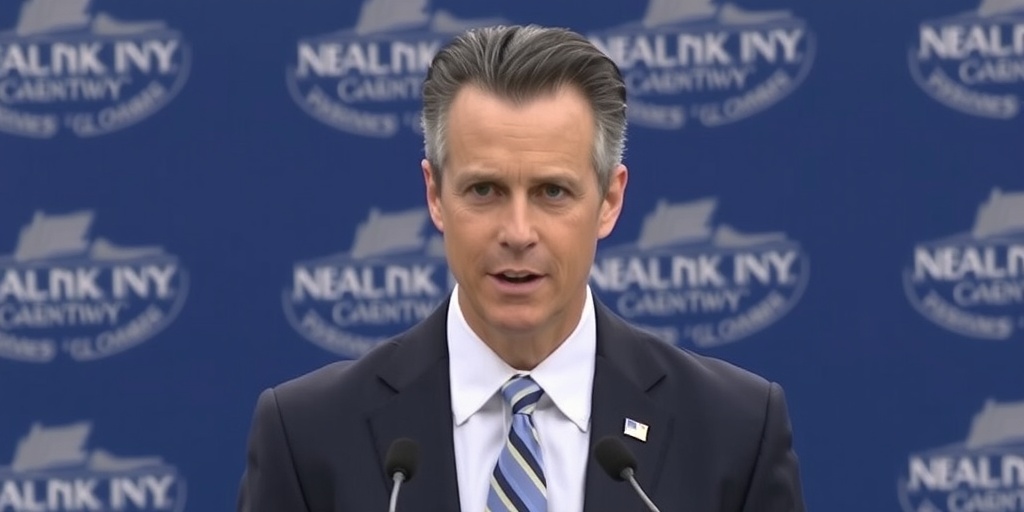Now Reading: House Censures Al Green for Heckling Trump During Congressional Speech
-
01
House Censures Al Green for Heckling Trump During Congressional Speech
House Censures Al Green for Heckling Trump During Congressional Speech
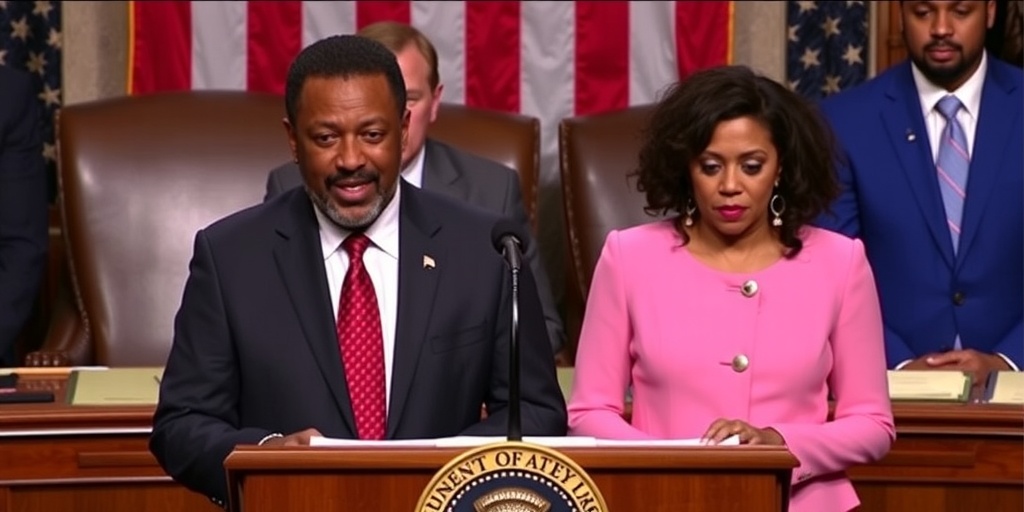
House Censures Representative Al Green Amid Chaotic Scenes Following Trump Address
In a dramatic turn of events, the House of Representatives officially censured Texas Representative Al Green on Thursday for his disruptive behavior during President Trump’s recent address to a joint session of Congress. Green, a Democrat, was ejected from the chamber for heckling Trump, an incident that sparked tensions among the members of the House and highlighted the growing divide within Congress regarding how to confront the Trump administration.
The censure resolution passed with a vote of 224 to 198, marking a rare bipartisan moment as it saw ten Democrats joining their Republican counterparts in support of the measure. Notably, both Green and Representative Shomari Figures, a first-term Democrat from Alabama, cast votes of “present,” indicating their dissent from the decision without actively supporting it.
As Green stepped up to the well of the House to formally receive his censure, the atmosphere quickly escalated into chaos. Instead of a quiet acceptance of the penalty, Green led a group of his Democratic colleagues in a powerful rendition of the civil rights anthem “We Shall Overcome.” This spirited display drew the ire of Speaker Mike Johnson, who struggled to be heard over the uproar. Despite Johnson’s efforts to continue reading the censure resolution, he had to call a brief recess as the tensions flared into open shouting between the two parties.
This incident is part of a larger ongoing conflict within Congress, as various factions within the Democratic Party grapple with how best to respond to Trump’s administration. On one side, some members, led by figures like Green, advocate for a more aggressive approach to resistance, while others urge for a strategy grounded in decorum and measured responses. The heckling incident, and the subsequent censure, has served to illuminate these contrasting philosophies regarding party strategy as the political climate continues to evolve.
The ten Democrats who joined Republicans in supporting the censure include Representatives Ami Bera of California, Ed Case of Hawaii, Jim Costa of California, Laura Gillen of New York, Jim Himes of Connecticut, Chrissy Houlahan of Pennsylvania, Marcy Kaptur of Ohio, Jared Moskowitz of Florida, Marie Gluesenkamp Perez of Washington, and Tom Suozzi of New York. Their votes indicate a fracturing within the party, with some members feeling that such behavior cannot be tolerated if the party aims to maintain credibility.
The action of censure is considered one of the highest forms of reprimand that the House can impose. It represents a formal and public condemnation of a member’s actions, and in recent years, the use of such resolutions has become more common as both parties engage in political score-settling. The last member to be censured was former Representative Jamaal Bowman, a New York Democrat, who faced rebuke in 2023 after pulling a fire alarm during a critical House vote—an act that Republicans characterized as an attempt to stall legislative business.
After the incident, Green expressed his willingness to accept the consequences of his actions and insisted he bore no ill feeling towards the Speaker or his fellow House members. "I didn’t do it to get anybody else to join me,” he shared with reporters. “I believe that on some issues, it’s better to stand alone than not stand at all.” This sentiment underscores Green’s conviction that his protest was rooted in a deep moral obligation, particularly regarding matters such as Medicaid, a program he noted is vital for many of his constituents.
Green emphasized the importance of standing up for one’s values, asserting, “I would do it again. I’m not saying I’m going to now contrive and try to find a way to do it again.” His remarks suggest a steadfastness in his principles and a commitment to fighting for issues he believes are crucial, even if it results in personal and political ramifications.
The fallout from Green’s actions and the subsequent censure is likely to resonate within the House as members continue navigating the fraught political landscape. As the Democratic Party debates its direction and strategy moving forward, instances like these will undoubtedly play a significant role in shaping the discourse both within the party and across the broader political spectrum. The moments of unity and division displayed during this episode reveal the complexities of maintaining party cohesion while addressing the urgent need for effective opposition in a tumultuous political environment.
As the House continues its work, the conversations sparked by Green’s outburst and the response to it will likely influence how future interactions unfold between Democrats and Republicans in the coming months, particularly as they prepare for upcoming legislative battles. The implications of this censure extend beyond the immediate spectacle, raising critical questions about approach, accountability, and the nature of political dissent in today’s climate.
Stay Informed With the Latest & Most Important News
Previous Post
Next Post
-
 01New technology breakthrough has everyone talking right now
01New technology breakthrough has everyone talking right now -
 02Unbelievable life hack everyone needs to try today
02Unbelievable life hack everyone needs to try today -
 03Fascinating discovery found buried deep beneath the ocean
03Fascinating discovery found buried deep beneath the ocean -
 04Man invents genius device that solves everyday problems
04Man invents genius device that solves everyday problems -
 05Shocking discovery that changes what we know forever
05Shocking discovery that changes what we know forever -
 06Internet goes wild over celebrity’s unexpected fashion choice
06Internet goes wild over celebrity’s unexpected fashion choice -
 07Rare animal sighting stuns scientists and wildlife lovers
07Rare animal sighting stuns scientists and wildlife lovers













